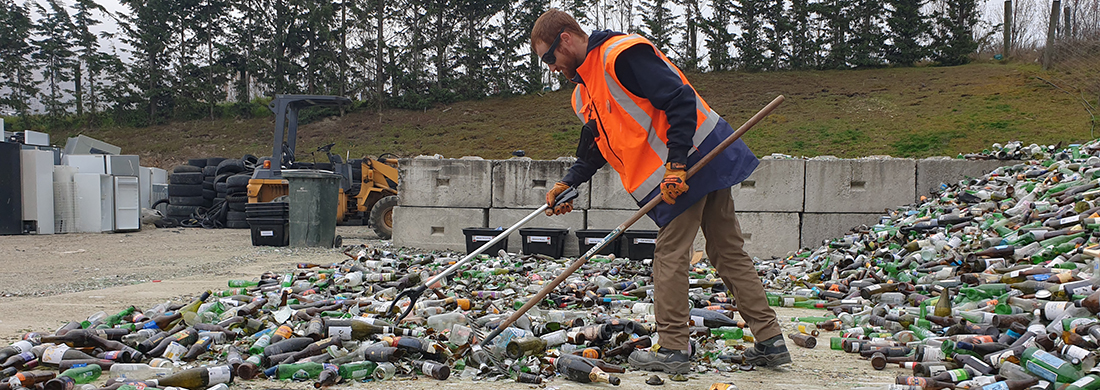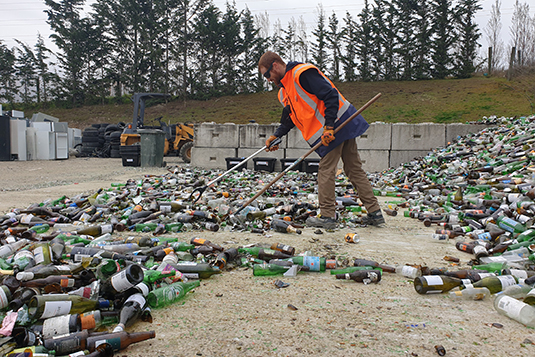
Glass recycling audit highlights clear progress

JOINT MEDIA RELEASE: Queenstown Lakes District residents and businesses are doing an awesome job of glass recycling.
Findings from a recent audit undertaken by Queenstown Lakes District Council (QLDC), and funded by the Glass Packaging Forum (GPF), have found glass collected locally for recycling is of high quality with a contamination rate of just 0.35%.
QLDC Waste Minimisation Project Officer Kath Buttar said this represented just 515kg of the total sample of 145,730kg collected glass that was audited.
“With contamination at well below 1% the audit demonstrates how well our community is doing with glass recycling. Glass bottles and jars collected in our district are sent to Auckland to be recycled into new containers right here in Aotearoa New Zealand.
“Glass which is too highly contaminated can’t be recycled so it’s important we keep monitoring what we collect and encourage the community to continue recycling with care,” she said.
“With the help of Council contractors and the GPF, the audit has enabled us to collect comprehensive data on the quality of all incoming glass and find out more about the type and level of contamination so we could take steps to address it.
“The majority of contamination found was general rubbish and non-recyclable glass like wine or drinking glasses ending up in the blue bin, but other recyclables, such as plastic and cans which should go into the yellow bin, and ceramics were also identified,” she said.
“We now have an improved understanding of areas we need to focus on, such as ongoing operational and educational initiatives, to help keep our glass of good quality.”
The audit was conducted over three months with Council staff developing an innovative online reporting system which Ms Buttar said not only made gathering data easy and effective but also allowed progress to be tracked in real time.
“It’s an awesome system which can be adapted for future projects,” she said.
GPF Scheme Manager Dominic Salmon said the Council did an impressive job. He also commended residents and businesses for the very low contamination rates.
“It’s really good to see results like this. Keeping glass as free from contamination as possible is essential to ensuring it gets recycled and doesn’t end up being wasted in landfill,” he says.


